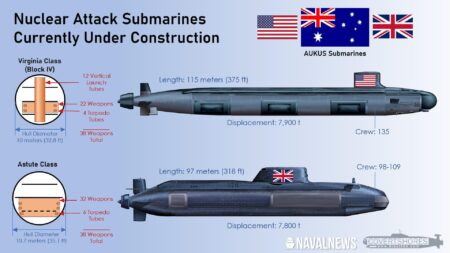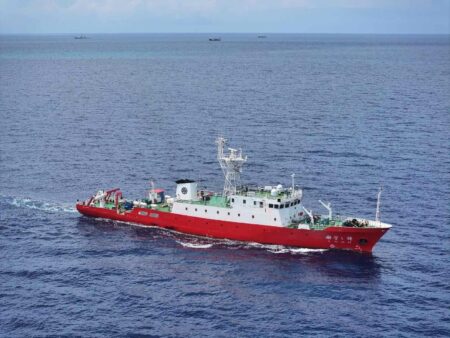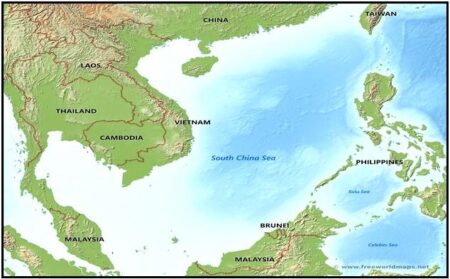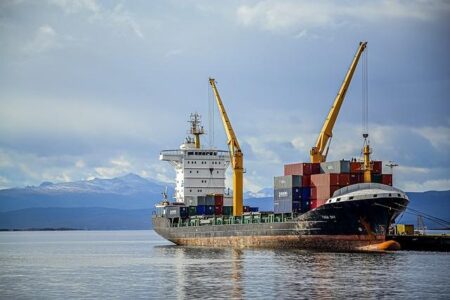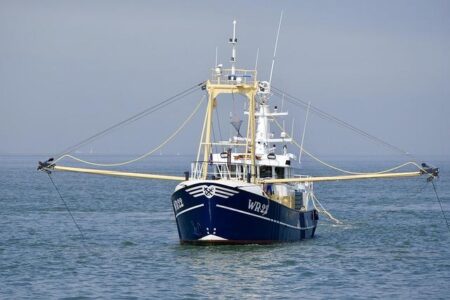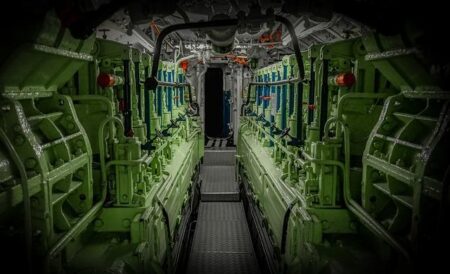Australia faces unexpected challenges in its AUKUS submarine deal, as logistical hurdles and rising costs threaten to derail the ambitious project. Analysts warn that the complexities of this defense partnership could impact national security plans.
Browsing: Maritime Security
The United Kingdom has uncovered a network of Russian spy sensors operating beneath its coastal waters, intensifying concerns over national security. The discovery highlights ongoing tensions between the UK and Russia amidst rising geopolitical threats.
Estonia has apprehended a Russian shadow tanker in the Baltic Sea amid heightened tensions in the region. The vessel, suspected of engaging in illegal fuel transfers, underscores ongoing concerns over maritime security and regulatory compliance.
Australia has heightened surveillance of a sophisticated Chinese research vessel operating near its maritime borders. Officials emphasize their commitment to monitoring the ship’s activities, amid concerns over potential espionage and regional security implications.
Australia is closely monitoring a Chinese research vessel off its south coast, raising concerns about potential espionage. The Australian government emphasizes the need to safeguard national interests while maintaining open maritime research collaboration.
Observers are raising concerns over escalating tensions in the South China Sea and Taiwan, as US allies strengthen their ties amid regional uncertainties. Increased military maneuvers and strategic partnerships could heighten risks of confrontation in the area.
Italy is considering the Japanese Kawasaki P-1 maritime patrol aircraft to address a critical gap in its anti-submarine warfare capabilities. The P-1, known for its advanced technology and efficiency, could enhance Italy’s maritime security amidst increasing naval challenges.
In a breakthrough negotiation, Russia and Ukraine have reached a cease-fire agreement in the Black Sea region, aimed at reducing tensions and fostering stability. Key details of the pact and its implications for regional security are under review.
During recent talks in Saudi Arabia, U.S. and Russian officials addressed the issue of shipping safety in the Black Sea, according to Russian Foreign Minister Sergey Lavrov. The discussions highlight ongoing international concerns over maritime security in the region.
China has unveiled a powerful deep-sea cable cutter designed for underwater operations, according to reports from South China Morning Post. This advanced technology marks a significant development in maritime capabilities, raising concerns among global maritime experts.
Germany has reportedly seized an oil tanker linked to Russia‚Äôs shadow fleet, aiming to curb the Kremlin’s circumvention of sanctions. This move underscores Berlin’s commitment to international sanctions and highlights ongoing tensions in the region.
In the wake of the Quad’s strategic discussions, India is poised to join a new military coalition focused on the South China Sea. This initiative aims to enhance regional security and address growing concerns over China’s assertive maritime activities.
Norway and Germany have joined forces to enhance the maintenance of the Naval Strike Missile, a pivotal asset for naval warfare. This collaboration aims to strengthen defense capabilities in Europe, ensuring operational readiness and advanced military technology.
Chinese warships have recently circumnavigated Australia, prompting security concerns among Australian officials. The naval maneuvers, viewed as a show of power, leave the nation feeling vulnerable and raise questions about regional stability and military preparedness.
In a region marked by geopolitical tension, France’s strategy in the Indo-Pacific emerges as a multifaceted approach balancing maritime security, regional partnerships, and proactive diplomacy. Understanding this strategy is crucial for navigating future conflicts and alliances.
France’s Suffren-Class submarines may emerge as a viable alternative for Australia following the AUKUS security pact. With cutting-edge technology and enhanced stealth capabilities, these submarines could reshape regional naval dynamics and bolster defense operations.
Recent imagery reveals China’s latest ‘invasion barges,’ a significant leap in amphibious assault capabilities. These vessels, designed for rapid troop deployment and logistics, raise concerns about regional security dynamics and military preparedness.
Iran, China, and Russia have commenced annual joint naval drills in a show of unity amid shifting global alliances. These exercises come as former President Trump’s policies continue to challenge traditional Western partnerships, raising geopolitical concerns.
China, Iran, and Russia conducted joint naval drills in the Middle East, reinforcing their military cooperation amid growing regional tensions. The exercises aim to enhance maritime security and showcase their strategic alliances, signaling a unified front.
Brazil is set to begin construction of 11 new NPa500MB offshore patrol vessels as part of its commitment to enhancing maritime security. These modern ships will bolster the country’s naval capabilities and ensure safer waters for trade and environmental protection.

